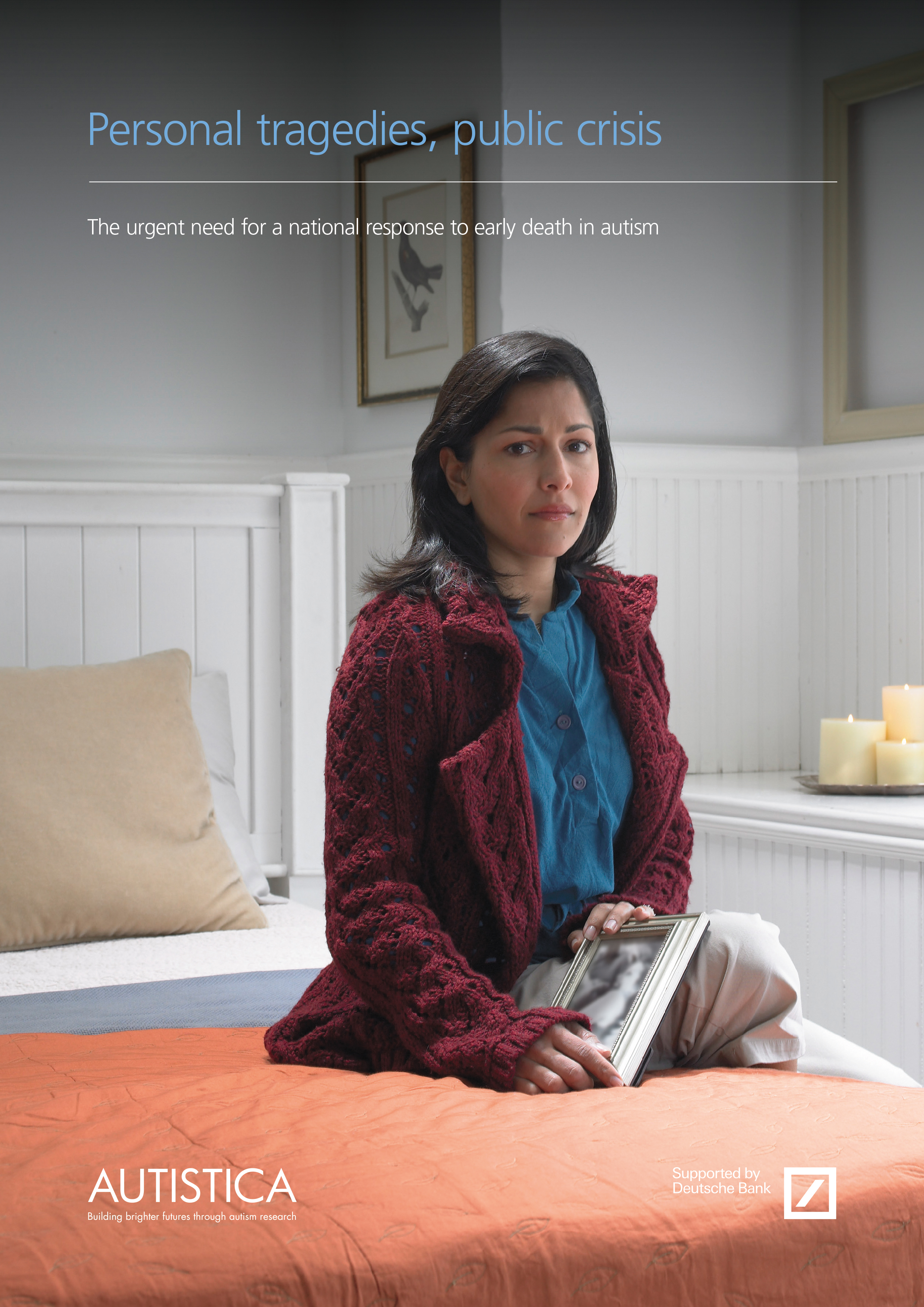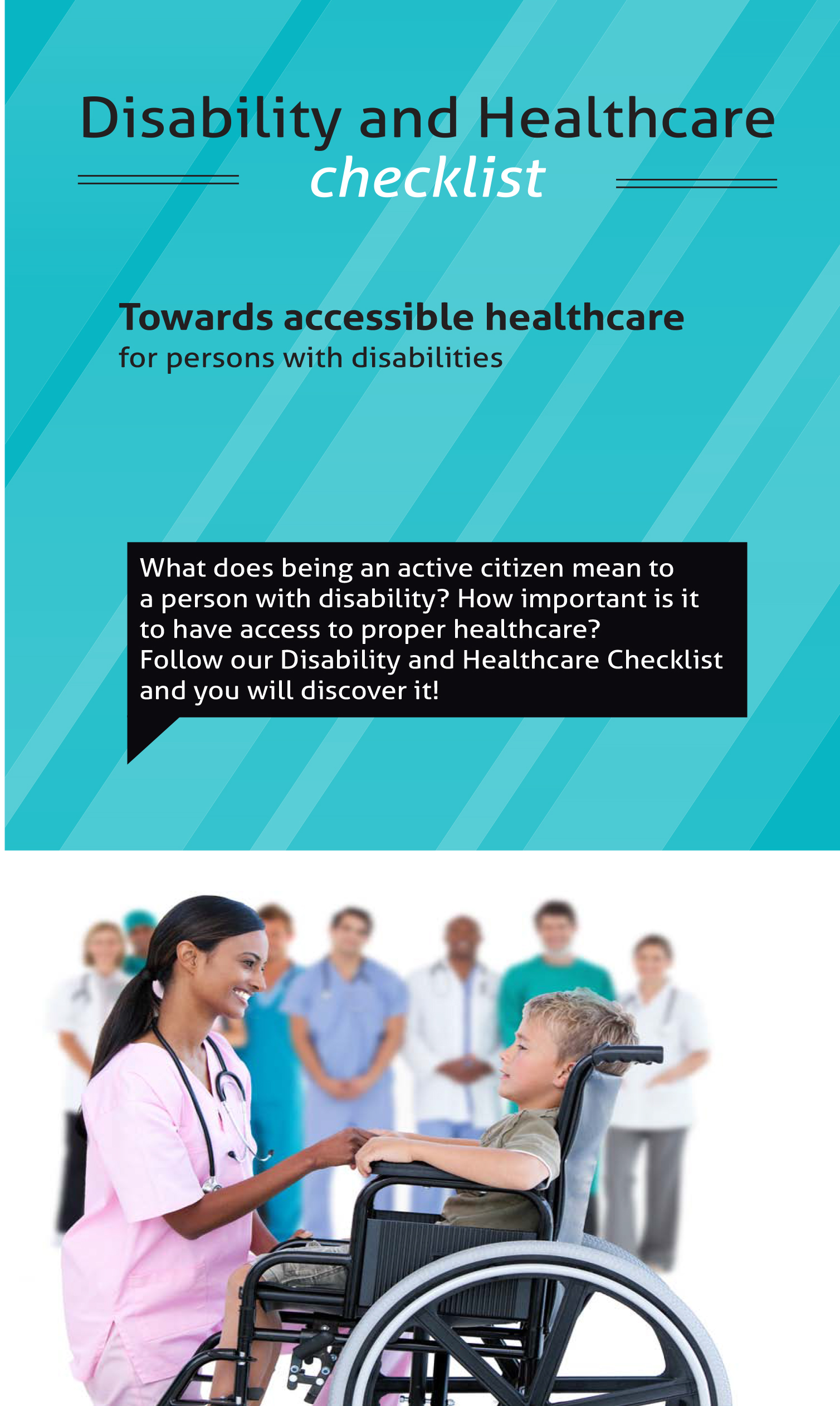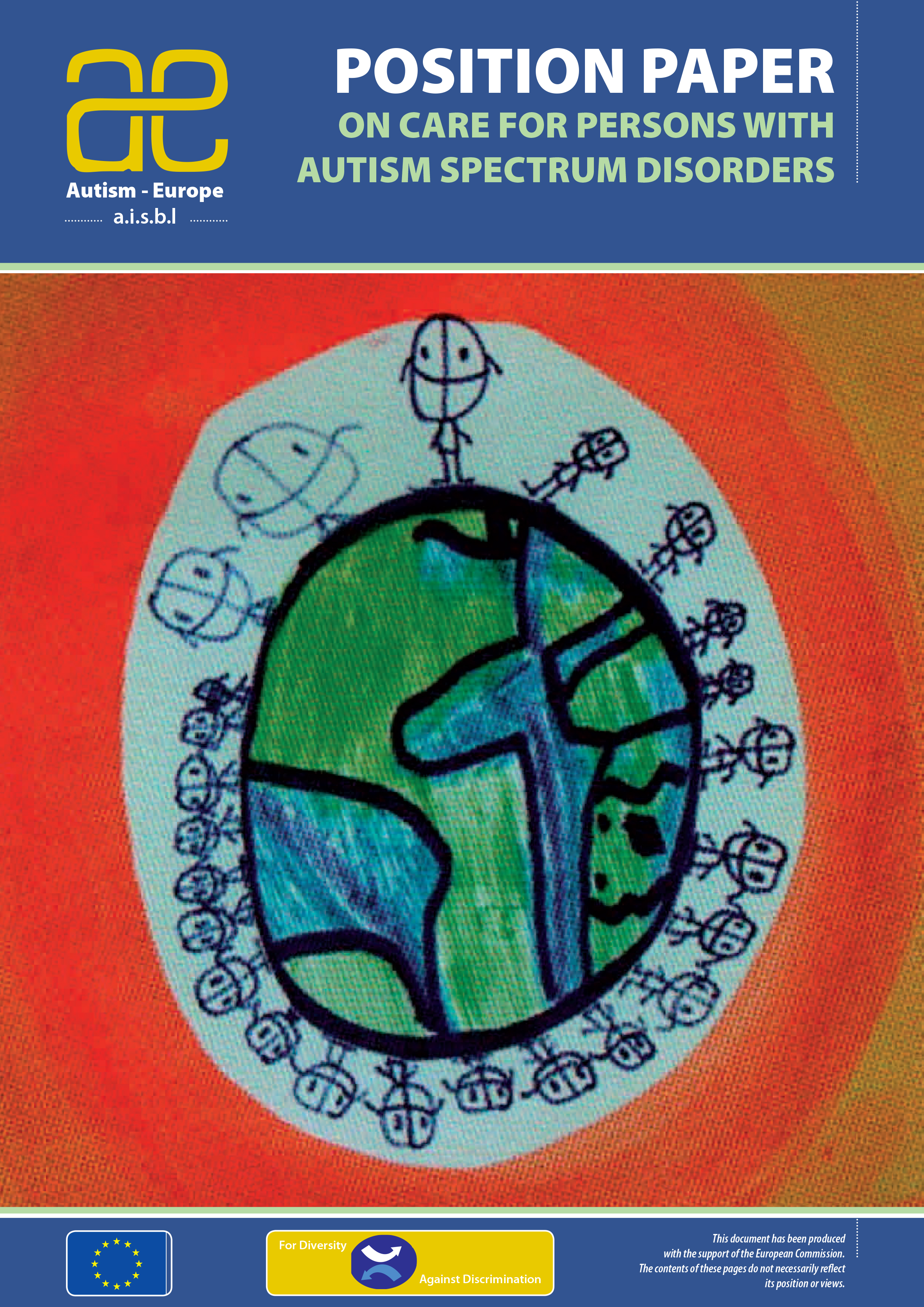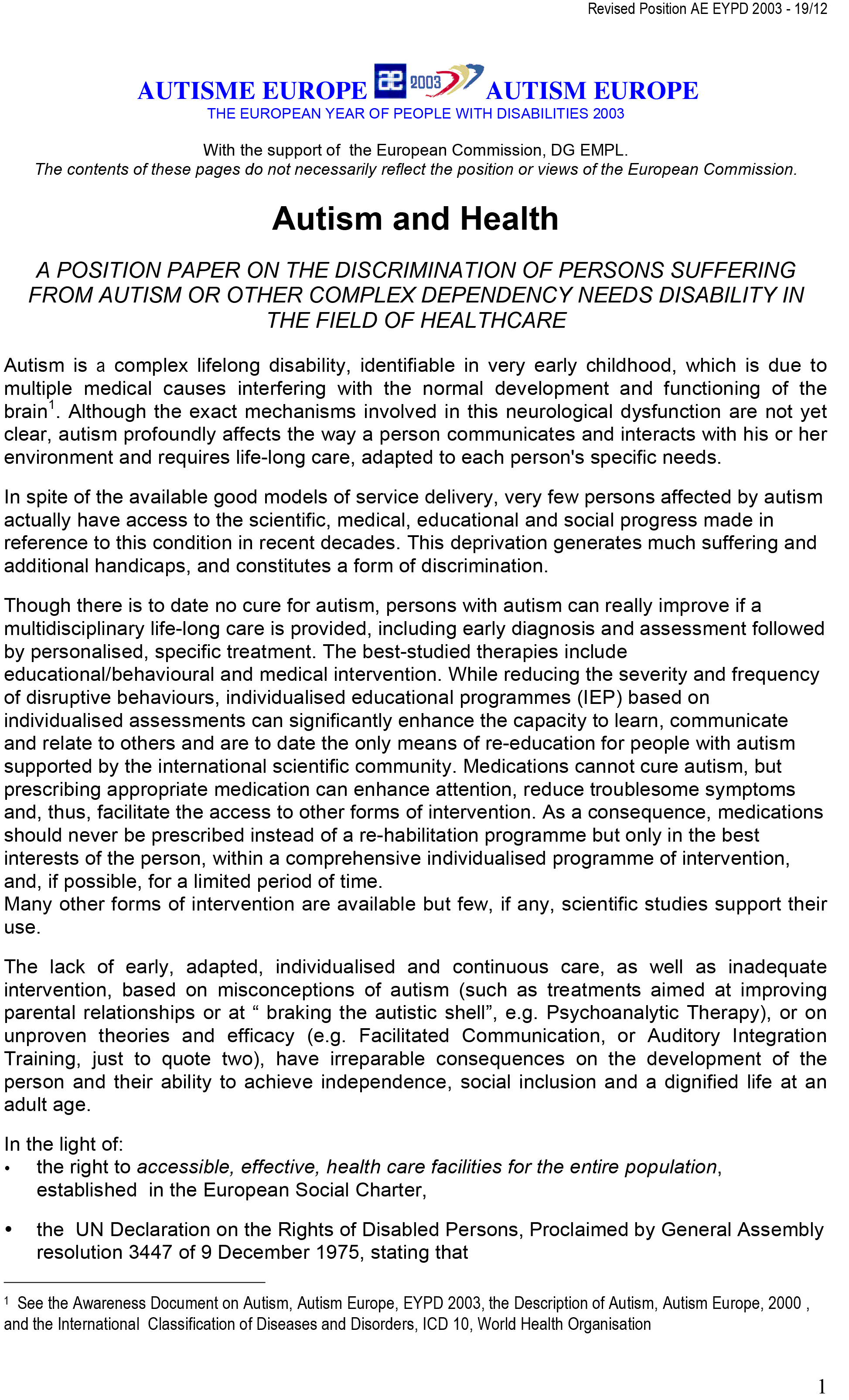
Under the United Nations Convention on the Rights of Persons with Disabilities, people with autism have the right to adapted health care.
It is important that healthcare providers and policy makers acknowledge that many autistic people may require modification of standard health care practices and service models in order to cope with their needs. Detecting warning signs and treating health problems in people with autism can be difficult, because of the social and communication impairments, the frequently associated sensory issues, the adaptive difficulties, the challenging behaviours, as well as fear and anxiety that physical assessment, diagnostic imaging, and a variety of other interventions may induce in autistic people. Reasonable adjustments of the health care and individual skilled support during hospitalisation or day care should be provided.
Medical problems can have an impact on the behaviour of autistic people, notably when they are not able to communicate pain or other feelings in a typical way. Therefore, ensuring a careful follow-up of their general health conditions is crucial in order to avoid more suffering, deterioration of health conditions and unsuitable (and needless) intervention.
In addition, autistic people may have unique healthcare needs that relate to other frequently associated conditions (eg, Angelman syndrome, fragile X syndrome, tuberous sclerosis, epilepsy). Healthcare systems can play a significant role in fostering the best development of individual potential and in improving the quality of life of autistic people and their families by acting immediately on parental concerns, monitoring behaviour and development, referring promptly for a comprehensive evaluation, searching for etiologic and comorbid conditions, expediting enrolment and implementation of appropriate intervention strategies, managing medical issues, and coordinating care among various service delivery systems.
COVID-19 pandemic and autism
Since early 2020, the COVID-19 pandemic has caused disruption across the globe and has had a big impact on the lives of autistic people. Any discriminatory practices in relation to access to treatment should be forbidden.
Autism-Europe’s resources
- Project: TRASE– Training in Sexual Education for People with Disabilities (2015-2017)
- Project: SEAD – Sex education for people with learning disabilities (2012- 2015)




